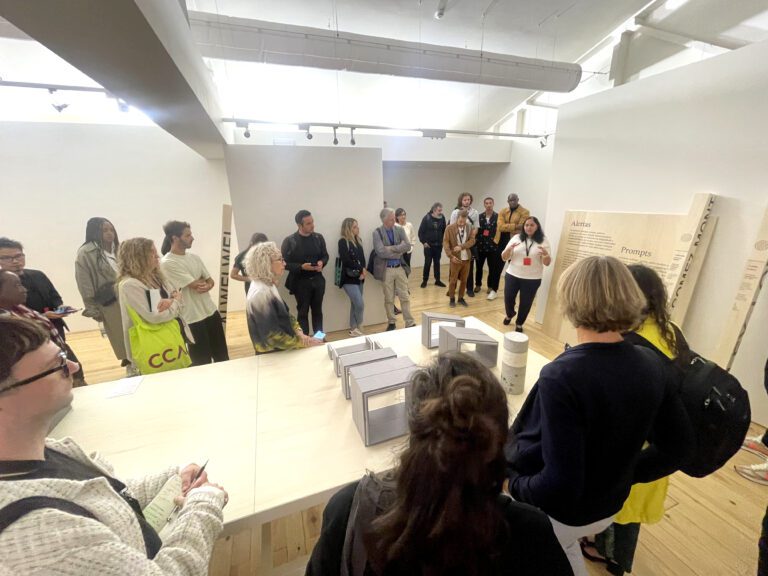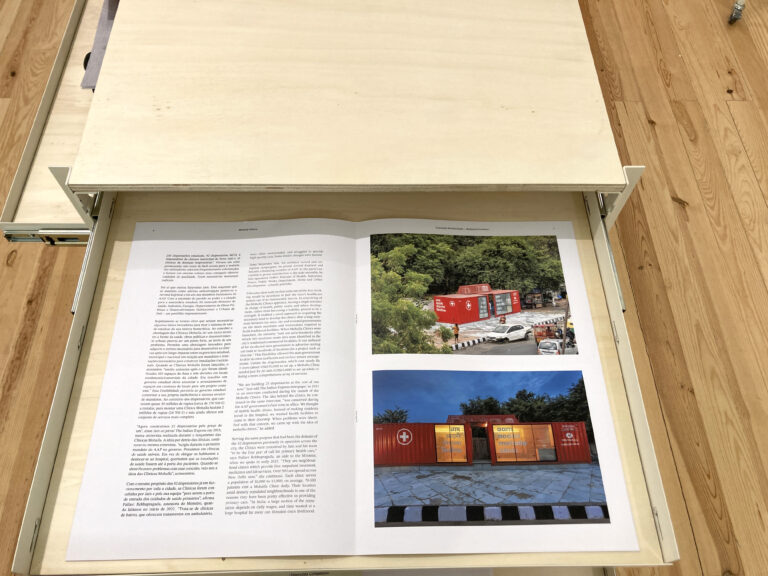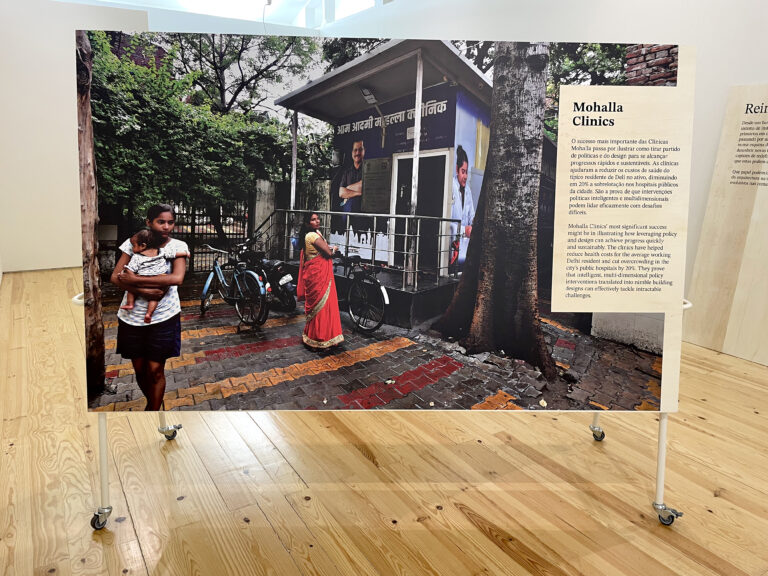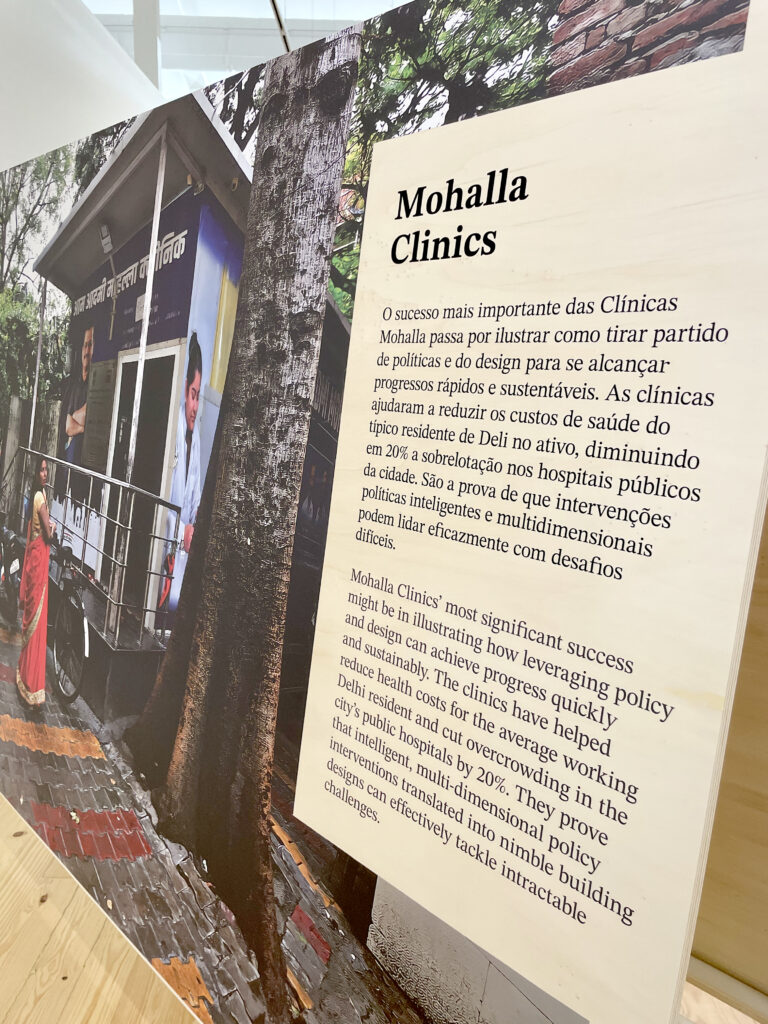
Architecture Discipline’s Mohalla Clinics was recently displayed at the Lisbon Architecture Triennale under the exhibition– Multiplicity. The exhibition examines how the field of design is evolving in an era of global uncertainty.

A prototype for a primary care centre built out of discarded shipping containers, the Mohalla Clinics brings affordable medical services to vulnerable communities in an optimistic and high-quality environment.
The crushing impact of the Covid-19 pandemic has laid bare the deficiencies of health infrastructure across the globe. India has fared poorly on health infrastructure indices for many years — the Human Development Report 2020 shows a national ratio of only five beds per 10,000 people. These limitations were exacerbated further by Covid-19 and the stress it exerted on our public health systems. This situation called for smaller, grassroots–level medical facilities that provide subsidised services and are quickly deployable, bringing affordable care to a broader population.

The Mohalla Clinic is a solution developed for the Delhi Government, bringing affordable primary healthcare to regions with limited access to larger health facilities. The first two units have been set up in the urban settlements of Rani Bagh and Shakur Basti, Delhi, India. In the next phase of deployment up to 500 units are to be deployed in various urban settlements in Delhi.
Made from recycled shipping containers, the clinic comprises a reception, a waiting lounge, an examination room, and a pharmacy accessible from outside, making it suitable for routine health checks, testing, vaccinations, and purchasing medicines.

Composed of two 20-foot-long containers, the Mohalla Clinics can be entirely prefabricated with minimal on-site construction and greater quality control. Because of this, the clinics can be deployed rapidly within 3-15 days, depending on the time taken for container procurement. Factory production can bring this duration down further to 2-3 days. In addition, the prototype can be deployed virtually anywhere and can be airlifted to emergency situations like disaster-struck regions or war zones.

The clinic’s interior finishes are centered around creating an optimistic and clean environment for patients. The containers are thermally insulated for protection from heat and lined with VOC-free plywood. Interior finishes are designed to be easy to maintain, with anti-microbial vinyl flooring and medical-grade stainless steel countertops. The clinic’s air-conditioning system is fitted with microfilters to maintain air quality and filter out pollution. Windows with heat-resistant glass allow the clinic to be naturally lit without excessive heat ingress.
The clinic’s design capitalizes on the structural strength of a discarded shipping container and works with it as a module, reducing the need for costly modifications or custom-built additions. In this manner, it redefines post-industrial waste as a medium for the equal distribution of affordable health services, integrating them into a circular model of reuse. By taking something forgotten and giving it a new lease of life, the Mohalla Clinics propose a sustainable solution to the global health infrastructure crisis.